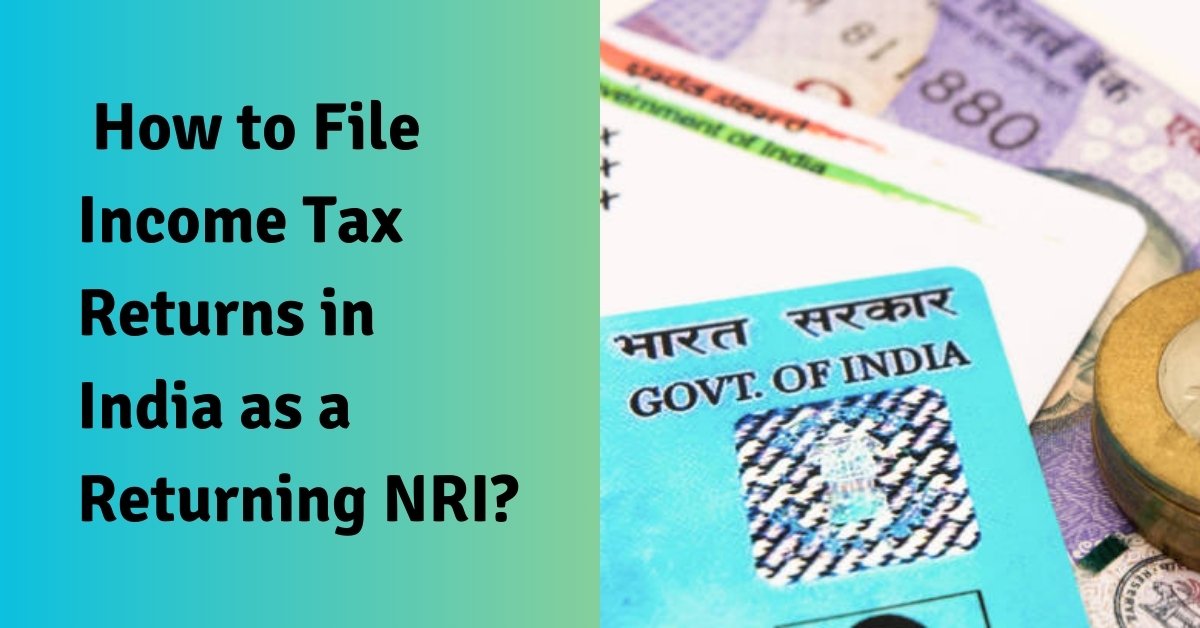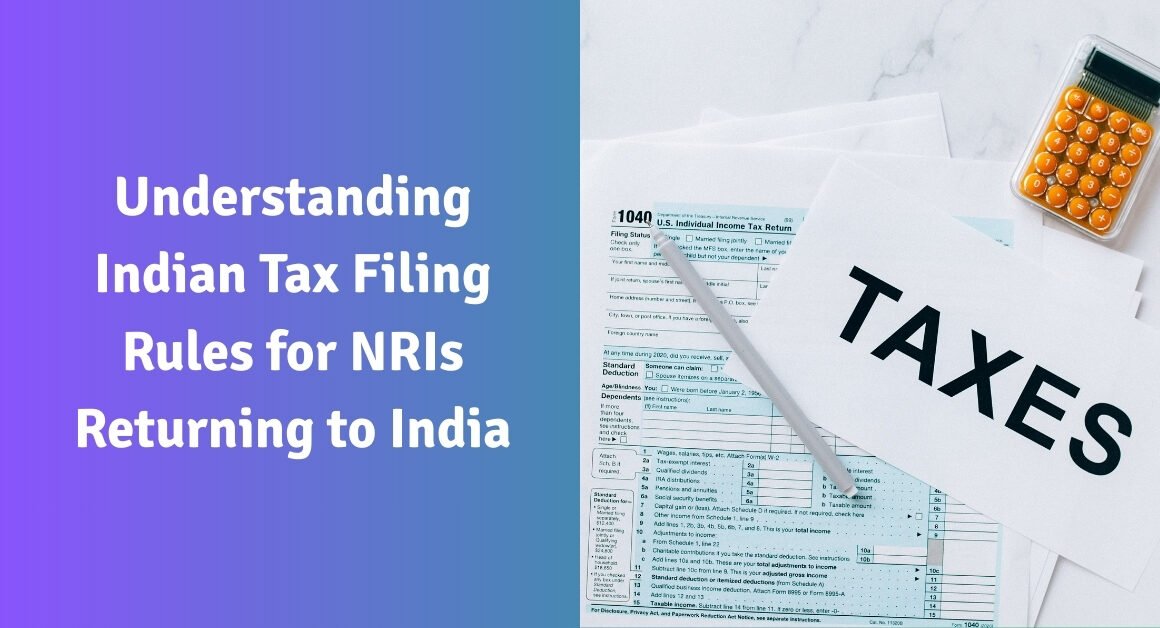As a Non-Resident Indian (NRI) returning to India, it is crucial to understand the process of filing your income tax returns. Navigating the Indian tax system can be complex, especially when transitioning from NRI to resident status. In this blog post, we will guide you through the steps involved in filing your income tax returns as a returning NRI.
Determine Your Residential Status:
The first step is to determine your residential status for the relevant financial year. If you have stayed in India for 182 days or more in a financial year or 60 days or more in a financial year and 365 days or more in the preceding four financial years, you will be considered a resident for tax purposes. If you meet these criteria, you may be classified as a Resident and Ordinarily Resident (ROR) or a Resident but Not Ordinarily Resident (RNOR), depending on your stay in India in the previous years.
Gather Necessary Documents:
To file your income tax return, you will need to gather all the necessary documents. This includes:
- PAN (Permanent Account Number) card
- Aadhaar card
- Form 16 (if applicable)
- Bank statements
- Investment proofs (for claiming deductions)
- Rental income documents (if applicable)
- Capital gains statements (if applicable)
- Foreign income and asset details (if applicable)
- Make sure to keep these documents handy before starting the tax filing process.
Choose the Appropriate ITR Form:
Based on your income sources and residential status, you need to select the appropriate Income Tax Return (ITR) form. As a returning NRI, you may need to use one of the following forms:
- ITR-1 (Sahaj): For individuals with income from salary, one house property, and other sources.
- ITR-2: For individuals with income from salary, multiple house properties, capital gains, and foreign assets/income.
- ITR-3: For individuals with income from business or profession.
- ITR-4 (Sugam): For presumptive taxation for small businesses and professionals.
Consult with a tax professional to determine the most suitable ITR form for your specific situation.
Calculate Your Total Income:
Calculate your total income from all sources, including salary, house property, capital gains, business/profession, and other sources. If you have foreign income, you need to disclose it in your tax return. Depending on your residential status (ROR or RNOR), the taxability of your foreign income may vary.
Claim Applicable Deductions and Exemptions:
As a resident taxpayer, you are eligible for various deductions and exemptions under the Indian Income Tax Act. These include:
- Section 80C: Deductions for investments in tax-saving instruments like the Public Provident Fund (PPF), National Pension System (NPS), and life insurance premiums.
- Section 80D: Deductions for health insurance premiums.
- Section 80G: Deductions for donations to charitable organizations.
- Section 80TTA: Deduction for interest earned on a savings account.
Ensure that you have the necessary proofs and certificates to claim these deductions.
Compute Your Tax Liability:
Based on your total taxable income, calculate your tax liability as per the applicable tax slabs. Don’t forget to include any applicable surcharge and cess. Suppose you have paid taxes in a foreign country and India has a Double Taxation Avoidance Agreement (DTAA) with that country. In that case, you may be eligible for a foreign tax credit to avoid double taxation.
File Your Income Tax Return:
You can file your income tax return online through the Income Tax Department’s e-filing portal (https://www.incometax.gov.in/). Create an account, log in, and follow the step-by-step process to fill in the details from the ITR form. Verify the information provided, attach the necessary documents, and submit the return. Make sure to digitally sign the return using your Digital Signature Certificate (DSC) or Aadhaar-based e-signing.
Verify Your Return:
After submitting your return, you need to verify it within 120 days. You can verify your return electronically using Aadhaar OTP, net banking, or by sending a signed physical copy of ITR-V (acknowledgment) to the Central Processing Centre (CPC) in Bengaluru.
Keep Track of Refunds or Demands:
Once your return is processed, you will receive an intimation from the Income Tax Department regarding any refund or demand. If you are eligible for a refund, it will be credited to your registered bank account. In case of a demand, you need to pay the outstanding tax along with applicable interest.
Filing income tax returns as a returning NRI requires careful planning and understanding of the Indian tax laws. It is advisable to seek the assistance of a qualified tax professional to ensure accurate and timely filing of your returns. Stay informed about the latest tax regulations and deadlines to avoid any penalties or legal consequences.
Disclaimer: The information provided here is for educational and informational purposes only and should not be construed as financial, legal, or tax advice. Consult with a qualified professional before making any investment decisions. We do not accept any liability for errors or omissions in this information nor any direct, indirect, or consequential losses arising from its use.





